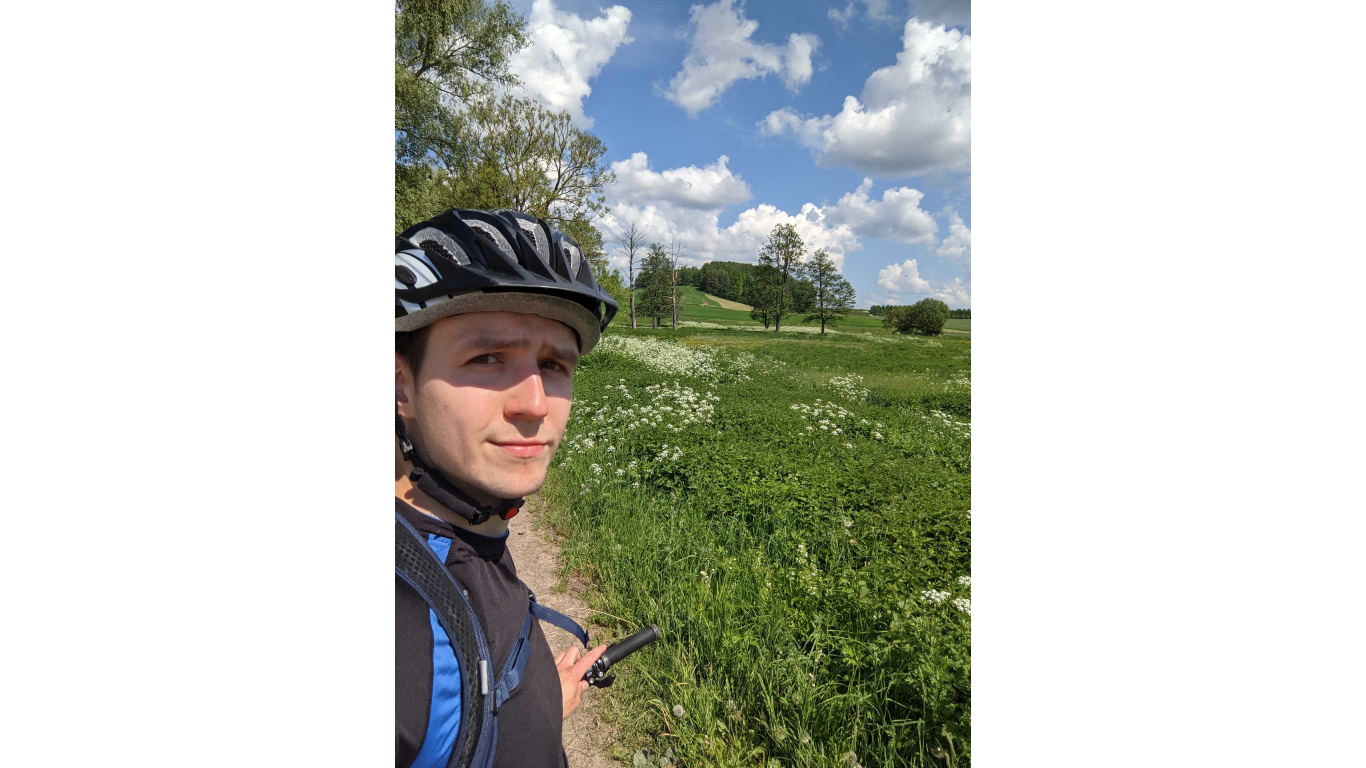From Concrete Profession to Flexible Code. A Mobile Developer's Career Story
From delivering precast concrete elements for one of the longest tunnels in Poland to programming, Mateusz's career journey has been full of changes. He especially embraces shifts in technologies, viewing tools not as goals, but as a means to an end. Learn how flexibility has elevated his career and what has been his goal all along.
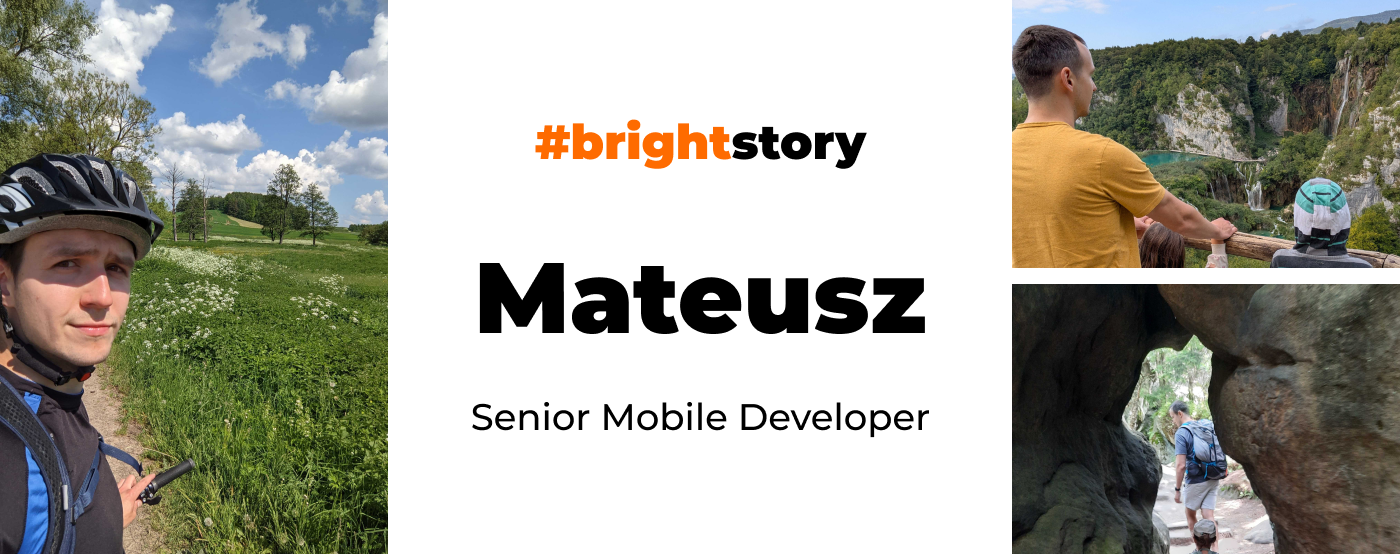
What was your journey towards software programming?
It was a long and bumpy one, I guess. I actually studied civil engineering, and at the time, my only real connection to programming was that my brother is a programmer.
When I graduated, I started working as a quality controller at a factory producing precast elements for a very interesting project – one of the longest tunnels in Poland. I also began to learn how to code in my spare time. During my studies, I saw that more and more of my peers were deciding to switch to software development, and I also had a friend who was trying to convince me to do the same.
Learning after hours wasn't easy while working in construction, because a shift could last up to 12 hours. After a day like that, it was tough to find time for family and studying. But, I managed to learn web development fundamentals.
But you eventually became an Android developer?
Yes, but that was totally by accident. I decided to sign up for a bootcamp and simply chose the one that was scheduled to start the soonest. It just so happened that it was a course on Android development.
After finishing the bootcamp, I quickly found my first job in the field and was able to leave the construction industry for good.
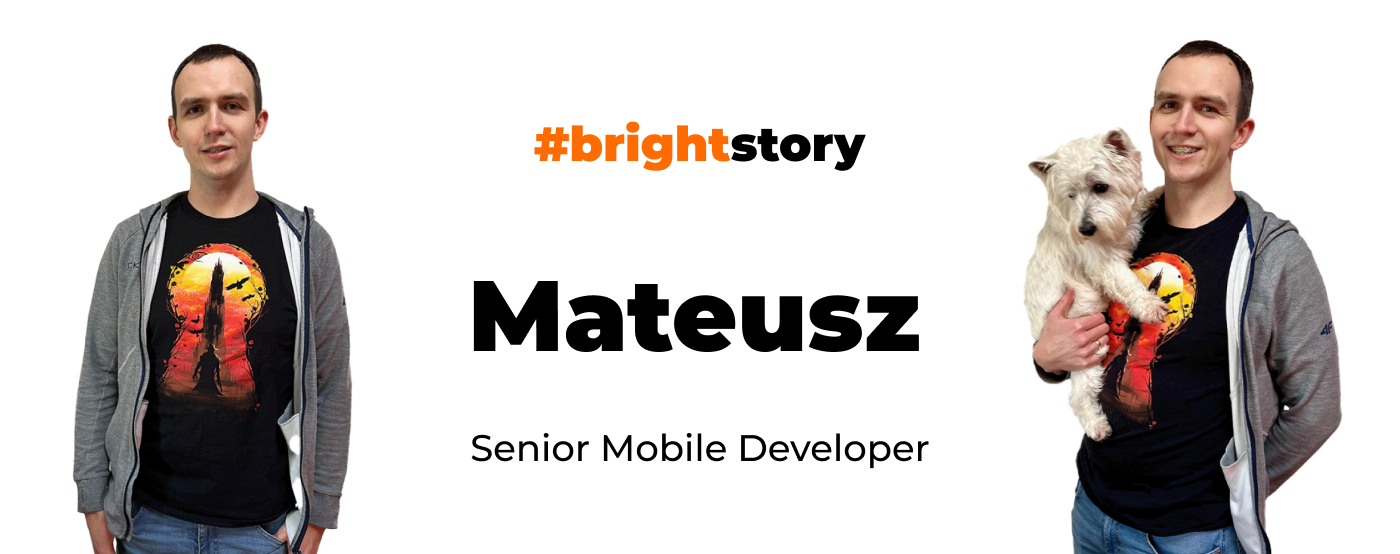
Was it a difficult goodbye to construction?
No, not at all. That industry really wore me out, but at the same time, it gave me the motivation I needed to change my career path. I didn't find the work very rewarding, especially after all the sleepless nights I spent studying in college.
Also, it's not nearly as flexible as the tech industry, and it's much harder to learn on your own. As a programmer, I can build an app in my spare time to test new solutions. I can't exactly go and build a house on my own just to learn something new.
What has your experience been like working at Bright Inventions?
I really enjoy working here, especially because of the very flexible approach, which gives me lots of opportunities to learn. For example, I joined as an Android Developer, but soon after I started, I was put on a project where Flutter was needed. That was quite exciting for me because I'd never done cross-platform development before.
I imagine some developers wouldn't be happy with such a sudden change of technology. What are your thoughts on that?
Probably, yes. I don't consider myself a typical software developer, given my different educational and professional background. I'm sure there are people who are much more knowledgeable when it comes to native Android development.
For me, I just love solving problems, it doesn't matter what the tool is. If I can learn a new one to get the job done, that’s even better. If I were told that I needed to learn backend development to solve a problem, I would gladly do it.
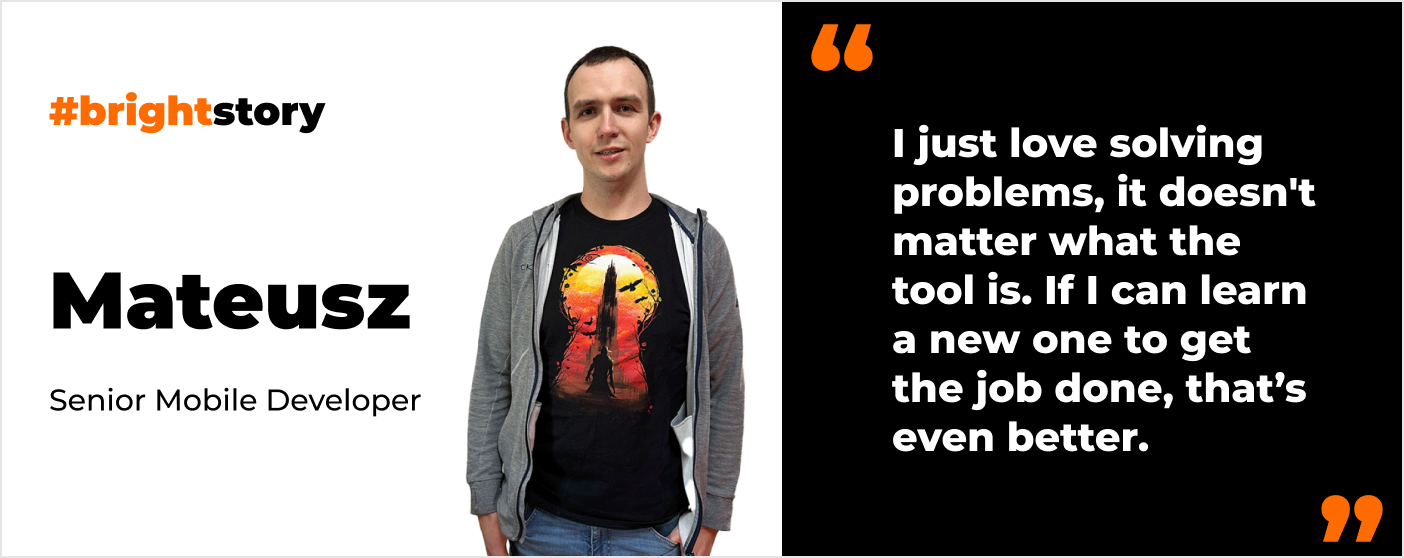
How does the business domain of our partners affect the code you write?
I don't think the business domain itself is the main factor. The most important thing is the business value we need to deliver. That value depends on many aspects – not just the domain, but also the partner's immediate business goals, their current challenges, and user feedback.
Business value is our compass. It points us toward the goal, and a developer's job is to find the most effective way to provide that value.
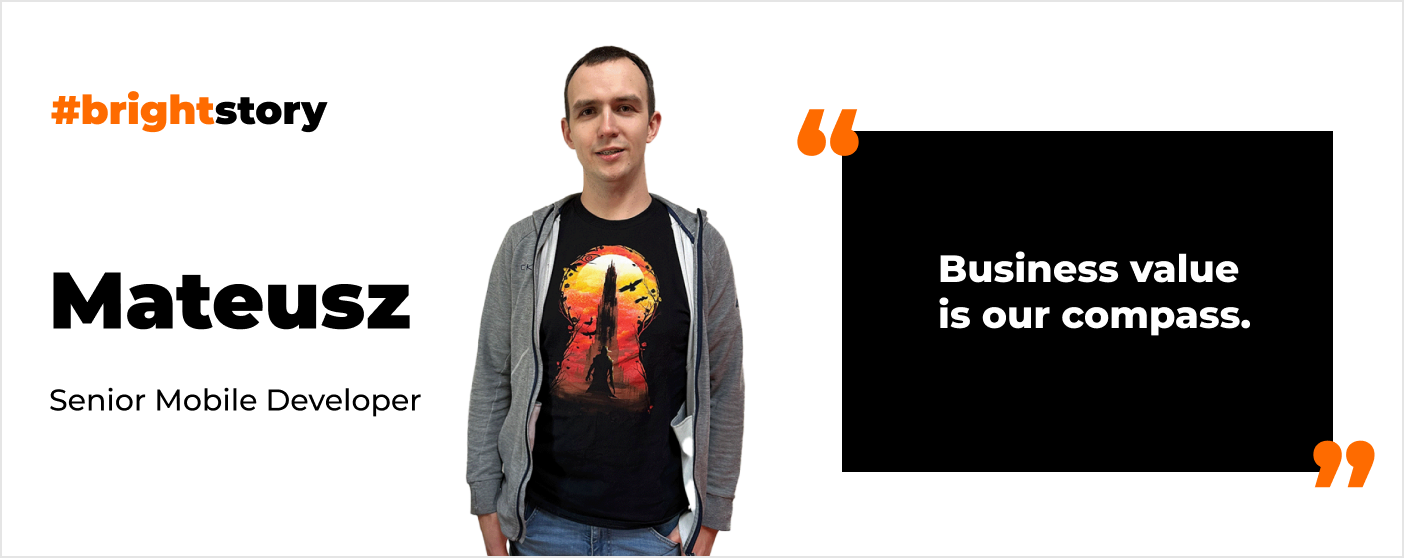
For example, let's say we need to add an important feature that users are expecting quickly, but we face technical limitations that prevent us from writing 'perfect' code (for instance, a backend system that constrains our mobile development). In that case, it’s all about finding a middle ground. We need to find a way to deliver the value now without complicating our work in the future.
Code doesn't need to be perfect or beautiful, as long as it won't slow us down later or significantly increase our technical debt. The key, however, is keeping the partner in the loop. They need to understand that we are choosing a pragmatic solution to deliver the feature as soon as possible, and that a refactor might be needed in the future to implement it according to all best practices.
If we take too much time to deliver a perfectly implemented feature, our competition could already be gaining users with their own imperfect, but earlier-launched, feature.
What’s the key to successful communication with partners and colleagues?
I believe the key is honest and direct communication. I value receiving and giving clear feedback, though of course, it's important to find the right balance to ensure that directness is always constructive.
When collaborating with partners, I especially appreciate having close and transparent communication. It's crucial that the partner keeps our team in the loop with their business goals and domain challenges. When we have that context, I can truly adjust my work to meet their real needs. Otherwise, it can feel like we're just completing tickets without understanding how our work actually influences their business.
Ultimately, it’s much better to have direct contact with the partner to discuss what they want to achieve before a ticket is even created. It sometimes turns out that a proposed task isn't what the partner truly needs in the end. Great communication helps everyone avoid unnecessary assignments, which, as we know, saves a significant amount of time and resources.
What do you enjoy doing after work?
My free time is dedicated to my children. We try to be active together, often going cycling or hiking when we can. After the kids are asleep, I sometimes find a bit of time to play video games.

So you often ride a bike?
Yes, definitely. Whenever I can, I choose my bike over the car to commute. The nature of our work requires a lot of sitting, and the last thing I want to do after hours is sit even more in a car stuck in traffic. That's where the bike really comes in handy.
